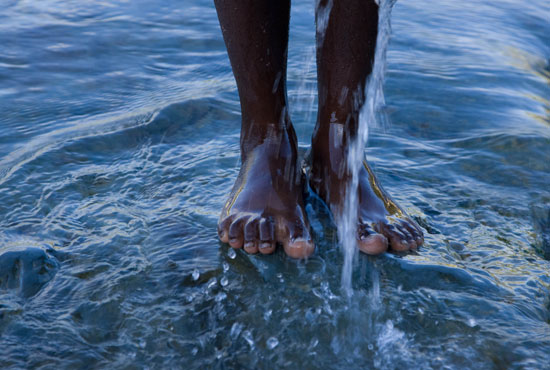Rotarians Provide Clean Access to Drinking Water

By Megan Ferringer and Arnold R. Grahl
Rotary International News – 22 August 2011
R otarians have teamed up with nongovernmental organizations in Belgium to bring clean drinking water and improved sanitation to thousands of families in the poorest districts of Toamasina, Madagascar.
The Rotary clubs of Brussel-Cantersteen, Belgium, and Tamatave, Madagascar, launched the project in 2009 with help from a Rotary Foundation Matching Grant. Lack of access to clean drinking water and poor hygiene have contributed to a high mortality rate in Toamasina, says Luc Daems, president of the Tamatave Water Project.
The effort is nearing completion, with the planned installation of more than 200 latrines for local families and schools, as well as drinking fountains to provide clean water for 2,000 people.
Over the past 10 years, the Foundation has awarded more than US$36 million in grants for projects supporting clean water and sanitation. Individual Rotary clubs have contributed at least another $50 million.
During World Water Week in Stockholm, Sweden , 21-27 August, experts from around the globe will meet to exchange ideas and develop solutions to the most urgent water-related issues. This year's program explores challenges to water and sanitation in an increasingly urbanized world.
Ron Denham, chair of the Water and Sanitation Rotarian Action Group, says Rotary has played a key role in addressing world water needs, and that a growing number of nonprofits are embracing its emphasis on sustainability.
"The core of every successful project is agreement with the community on its needs, especially the needs of women. It is invariably women whose lives are drastically affected by improvements," says Denham.
Many Rotary club and district projects include training in the technical knowledge needed to maintain equipment, and in the business skills necessary to manage a water system, such as collecting fees for operations and repairs.
In 2009, Rotary International and USAID launched the International H2O Collaboration to implement long-term water, sanitation, and hygiene projects in the Dominican Republic, Ghana, and the Philippines. Entering its third year, the collaboration is funding hygiene training and bio-sand water filters in the Dominican Republic; mechanized water systems, wells, rainwater collection vessels, and hygiene education benefiting over 85,000 people in more than 110 villages in Ghana; and a project to improve sewage collection and treatment that will help more than 150,000 people in the Philippines.
Other Rotary club and district water projects include:
- Toilets, showers, and baby-washing facilities provided for residents of Kibera, an impoverished community near Nairobi, Kenya, by clubs in the United States and Kenya with a Foundation grant. The grant also brought safe drinking water to about 300,000 people.
- A project to help stamp out guinea worm in Ghana, undertaken by Rotary clubs in Ghana and supported by clubs in 13 countries, including Canada, Switzerland, and the United States, in partnership with the Carter Center. The clubs have also been active in providing water to remote communities.
- Rainwater harvesting systems to serve 120,000 people and their livestock in Rajasthan, a state in northern India. Through another project, in the Indian state of Maharashtra, crop yields have tripled as a result of rainwater harvesting.
- The installation of household water systems in the South Rift Valley in Kenya, enabling girls to focus on going to school and women to undertake economic activities rather than fetching water.
Order Rotary’s Areas of Focus Guide to learn more about what you can do to improve water and sanitation.
